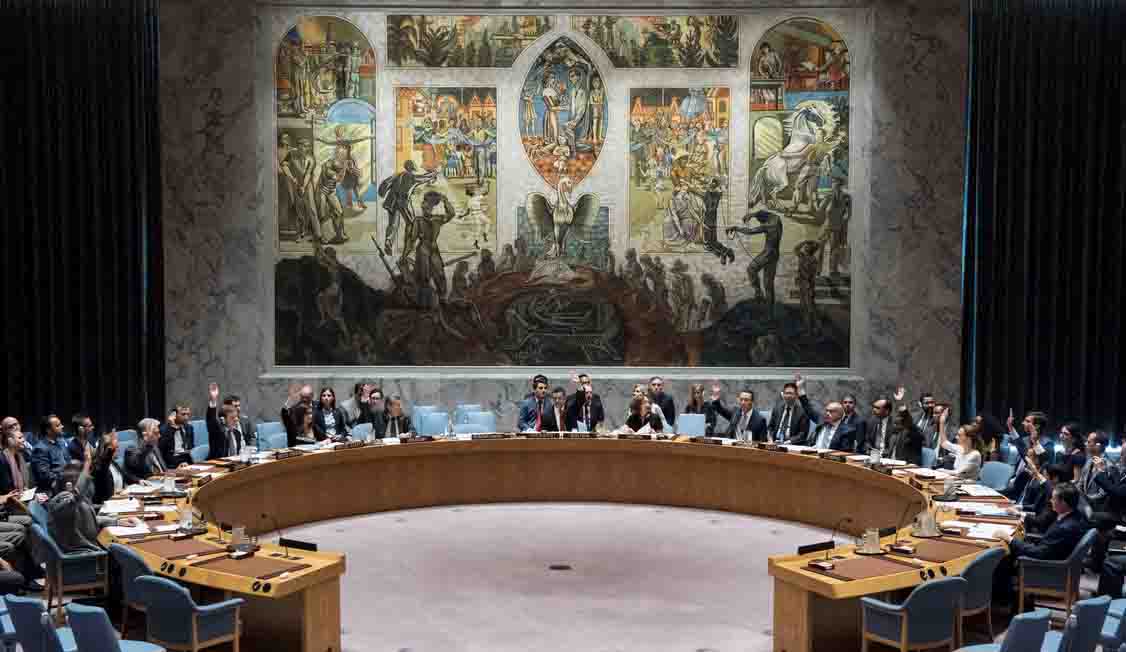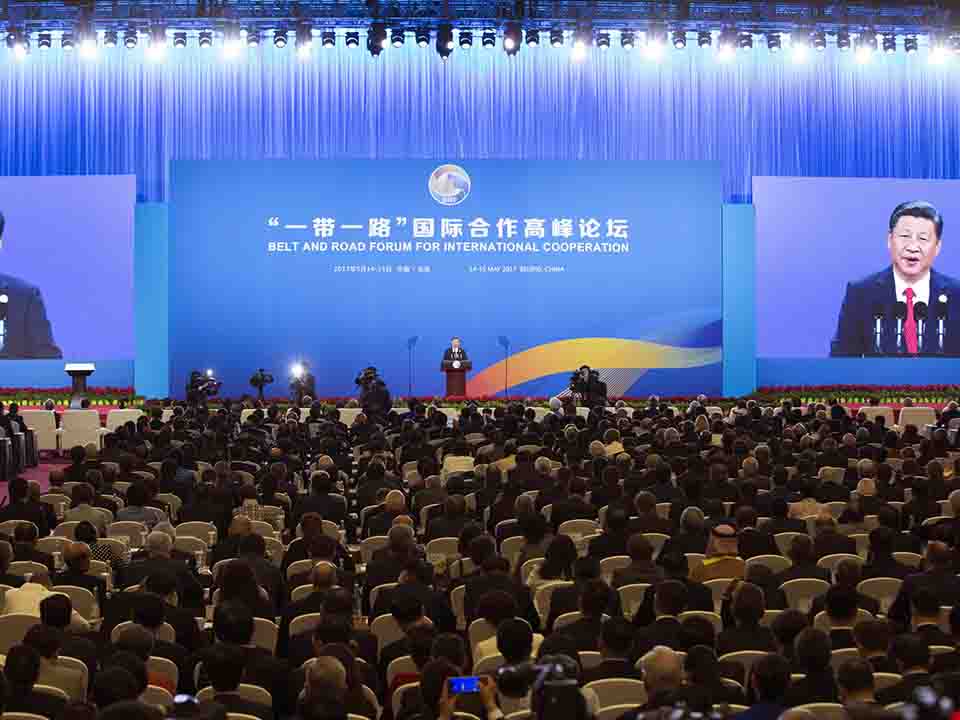"Paternalistic structure of the UN Security Council is outdated and irrelevant; Democratization is the only alternative. Let us use the COVID-crisis to bring about the transition."
The UN, earlier known as UNO, has been created, in the post-second-world-war scenario, through the Bretton Woods process, to address international conflicts and crisis through appropriate dialogues and interventions. Its ability to achieve this stated objective has not been all that great, nor even comfortable. There have been many issues that were resolved, but many more have not been resolved despite valiant attempts. The reason is that the UN and the comity of member-nations are very much like George Orwell’s Animal Farm where all animals are equal but some are a bit more equal. There are nations and nations. For the major part of the latter half of the 20th century, we had a bipolar world. Many of the international conflicts and crisis were the outcome of the cold-war; many were pulled in opposite directions by these poles. All such situations defied resolution because the UN could not overrule or discipline any of the polar-groups. With the collapse of the USSR, many felt that the UN became captive to the whims of the single-pole that continued to exist. Now, the world has become multi-polar.
Prime Concerns
At present all the member-nations are members of the General Assembly; the Security Council has five permanent members identified at the inception of the UN. These members are US, UK, USSR (later Russia), France and China. The first four came into the Security Council as victors of the Second World War and the founders of UN; China was represented by Taiwan, an island in the Pacific Ocean which was outside the People’s Republic of China. Obviously, this was the choice of the US who had more say in the initial days. Later, towards the close of the 20th century, Taiwan was replaced by the People’s Republic of China. The membership of the Security Council has become almost hereditary; this is one prime weakness of the UN in not being able to represent the aspirations of the international community.
"The membership of the Security Council has become almost hereditary; this is one prime weakness of the UN in not being able to represent the aspirations of the international community."
All critical resolutions of the UN need to be cleared by the Security Council with total consent. Even if one member objects, the resolution would not be carried through. Many important issues do not get access to the UN because of this veto power. This is another prime weakness of the UN in handling pressing international issues.
All other weaknesses of the UN can be overcome if these two prime weaknesses are resolved. So far none of the security council members was willing to discuss this issue because each has a vested interest in retaining the veto power. The world has changed a lot since the inception of the UN in 1945. From a bipolar world in the 1960s we will be moving into a multi-polar situation in the 2020s. In 2020, the world is keen to discuss the pandemic of Covid-19 in the UN but unable to do so because China does not wish it.
"What use is the UN if it cannot deliberate on a pandemic that has affected millions across the globe, taken the lives of many and has crippled the global GDP by at least a fifth of its annual-volume?"
Besides the concept of permanent membership smacks of feudalism least befitting to an enlightened world of the 21st century. This is the inflexion point for reform of the UN.
Elements of Reform
What should be the elements of the reform? Since the UN is a forum of all nations of the globe its constitution and internal processes should reflect this ethos. This noble objective can be achieved through two basic/principal rules of representation and governance.
1. Every nation on the globe shall be offered a membership to the General Assembly of the UN with the broad guidelines of
1.Membership shall be irrespective of the form of the government of the nation – democratic/autocratic/ monarchy/military junta/ etc.
2.Membership is not allotted through the decision of the Security Council. Nobody shall have the power to deny membership to any nation.
3.Nobody can take away the membership; UN may impose strictures/ penalties etc, through due process, for defaults in discipline/compliance.
4.Every member is expected to pay membership fee towards the expenses of the UN. This shall be linked to the GDP of the nation and shall be decided by the UN based on its budget needs.
2. Security Council (UNSC) is the upper house of the UN vested with a certain amount of decision/authority. Strength of 9 members is suggested. These members shall be prominent nations of the world and acceptable to at least two-thirds of the members of the General Assembly. They should broadly represent various regions/continents of the globe. The membership shall not be permanent; it is subject to review/recall/election at intervals of 5 years. The rules guiding their choice/retention/recall are
1. There shall be 9 members in the Security Council
2. Initially, the top-9 economies of the world shall become members of the Security Council.
3. The members will have a mandate for 5 years. At the end of 5 years, the members are eligible to seek a fresh mandate from the General Assembly. Each member will have 9 votes to be cast to 9 individual member-nations. No member can cast more than one vote to any candidate-member.
4. Only nations with two-thirds votes in the GA shall become members of SC. To fulfil this criterion, multiple rounds of polling may be held, if necessary.
5. An SC-member can be recalled for indiscipline or rogue/unethical behaviour or similar other issues. The recall will need a two-third majority in GA and SC respectively.
6. For non-repayment of membership fees, a member-nation will be deprived of its voting rights till the default is cleared.
3. Important policies and decisions will need the clearance of the Security Council. (The present policy in this matter, with modifications as considered necessary, maybe continued)
4.Resources of the UN will have to come primarily from the membership fees.
1. Membership fees (fees to be a member of the GA) shall be decided on the basis of “from each according to his capability”. The nominal value of GDP in dollar terms shall be the basis of deciding a member’s capability. The suggestion is to link the membership fees to a fixed percentage of the nation’s GDP. The exact percentage should be worked out after considering the annual budget of the UN and the value of the global GDP.
2. When a nation is elected as a member of the Security Council, the nation is bound to pay additional fees. The membership fees to the SC should also be fixed in a similar manner; the fees for SC shall be higher than the fees for GA.
3. UN and its Resource Mobilization Team shall explore other means of raising resources so that the burden on the members by way of membership fees can be minimized.
5. Some additional points to the guidelines will be:
1. There will be no veto power with any SC-member.
2. Normal resolutions will need a simple majority of 50 % or more votes. Special resolutions will need a two-thirds majority.
3.Any Resolution that has global or long-term policy implication or Substantial Resource (financial/military/other) implication is treated as ‘Special Resolution.’ All other resolutions will be treated as ‘Simple Resolution.
This author is proposing this set of reforms as they are easy to comprehend. Primarily, these reforms will make the UN more participative, representative and hence democratic. It will no more be the hegemony of certain groups and lobbies. To a large extent, this set is adequate to take care of the concerns of the 21st century.
But who will bell the cat?

None of the current SC members would like to forego the veto power they are enjoying. Only in a crisis situation, when everybody is keen to reign in the tangential whims of member-nations, will the comity of nations have the opportunity of debating the structure of the UN. The vast number of GA members, the silent majority will have to take the initiative to drive the reforms. Let this idea be debated among them; once it becomes a talking point, the momentum should push it through. The current crisis situation is an opportune moment to think of alternatives. Let sane thinking prevail on all or else UN will be part of history and a relic of the world.



